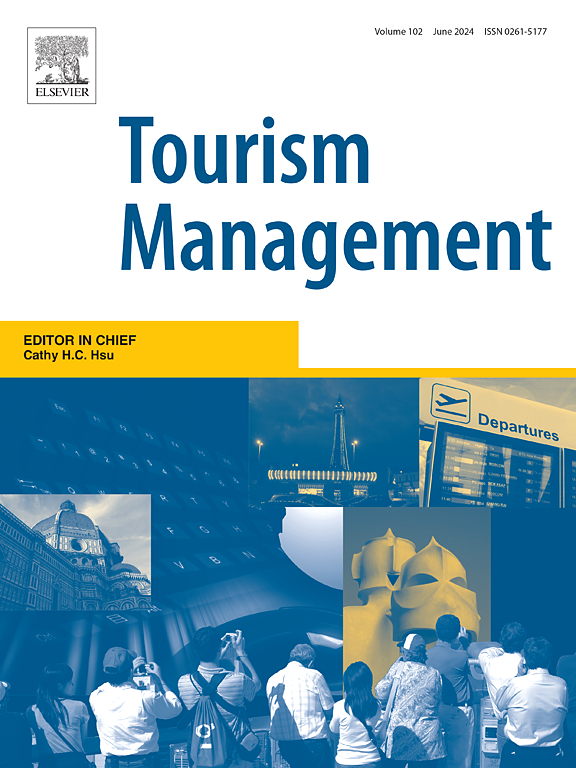Tourism demand forecasting using compound pattern recognition
IF 10.9
1区 管理学
Q1 ENVIRONMENTAL STUDIES
引用次数: 0
Abstract
Forecasting tourism demand is challenging due to complex seasonality and unexpected crises and events. Pattern recognition has been acknowledged as an effective tool for managing this uncertainty. This study develops a compound pattern recognition framework that dynamically compounds calendar and tourism demand volume patterns to forecast daily tourism demand. Adaptive similarity evaluation and optimal combination algorithm are incorporated into this process to capture the specific characteristics in the demand. An empirical examination of three tourist attractions in China demonstrates that this novel forecasting framework has achieved sound performance during both normal periods and the crisis of COVID-19. The findings provide tourism stakeholders with an effective solution for daily tourism demand forecasting tasks.
基于复合模式识别的旅游需求预测
由于复杂的季节性和意想不到的危机和事件,预测旅游需求具有挑战性。模式识别已被公认为管理这种不确定性的有效工具。本研究开发了一个复合模式识别框架,动态地将日历和旅游需求量模式结合起来,以预测每日旅游需求。该过程采用自适应相似度评价和最优组合算法来捕捉需求中的特定特征。对中国三个旅游景点的实证检验表明,这一新的预测框架在正常时期和新冠肺炎危机期间都取得了良好的表现。研究结果为旅游利益相关者提供了日常旅游需求预测任务的有效解决方案。
本文章由计算机程序翻译,如有差异,请以英文原文为准。
求助全文
约1分钟内获得全文
求助全文
来源期刊

Tourism Management
Multiple-
CiteScore
24.10
自引率
7.90%
发文量
190
审稿时长
45 days
期刊介绍:
Tourism Management, the preeminent scholarly journal, concentrates on the comprehensive management aspects, encompassing planning and policy, within the realm of travel and tourism. Adopting an interdisciplinary perspective, the journal delves into international, national, and regional tourism, addressing various management challenges. Its content mirrors this integrative approach, featuring primary research articles, progress in tourism research, case studies, research notes, discussions on current issues, and book reviews. Emphasizing scholarly rigor, all published papers are expected to contribute to theoretical and/or methodological advancements while offering specific insights relevant to tourism management and policy.
 求助内容:
求助内容: 应助结果提醒方式:
应助结果提醒方式:


